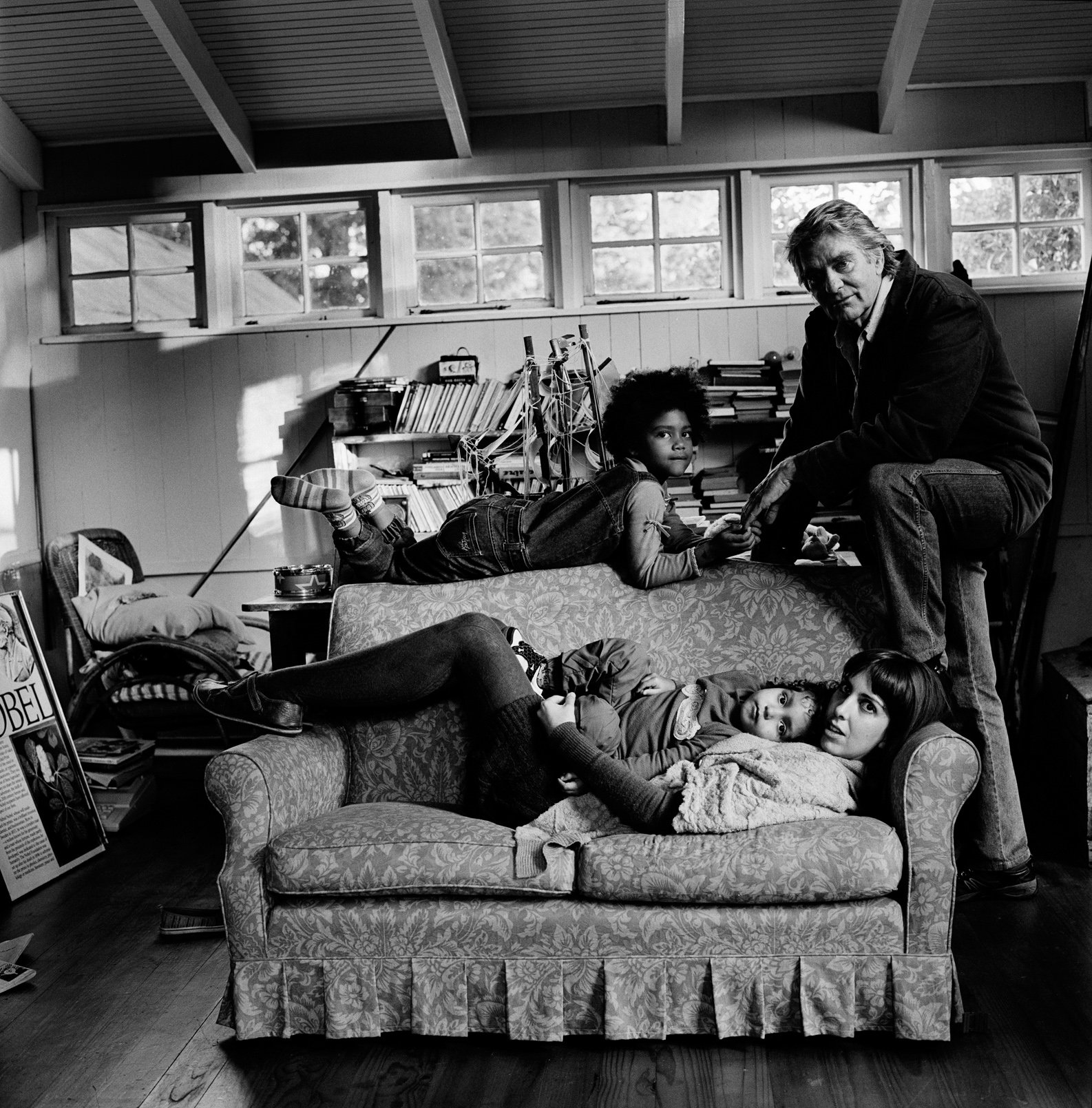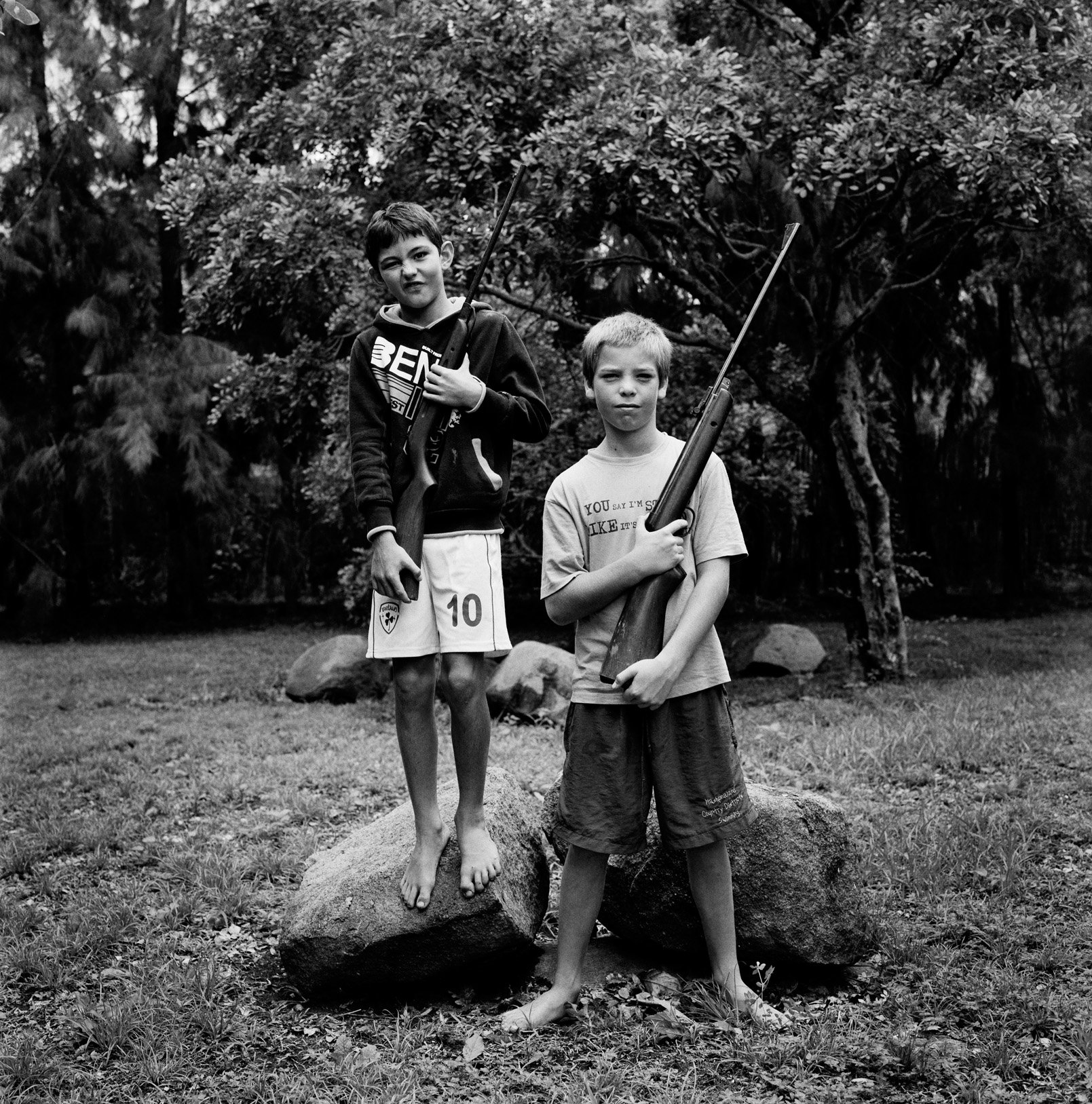The exhibition ‘A Journey to the Homeland’ by the South African photographer Katharine Cooper (1978, Grahamstown) presents a probing portrait of white Africans. Major political events, such as the collapse of Apartheid in South Africa in 1994 and the expulsion of white farmers from their houses in Zimbabwe in 2000, significantly changed the position of these Africans. Although many of them managed to secure a certain future for themselves after these changes, others were not so lucky. In 2013, Cooper returned for a journey through the countries of her childhood, South Africa and Zimbabwe. In a respectful way, she captured members of the white minority that she used to belong to herself.
For her photo series ‘A Journey to the Homeland’, Katharine Cooper used her Hasselblad camera to photograph the white farmers, with a special focus on their children, who got caught up in political and economic forces beyond their comprehension. More than thirty-five analogue black and white photographs not only show poverty and vulnerability, but also reveal a certain amount of pride and love for the continent where Cooper grew up. Pride and joy are tempered by vulnerability, while a smile accompanied by a riffle hides the uncertainty. The presence of animals in the photographs adds a deeper layer of meaning. A little boy clumsily holding a kitten, and therefore experiencing some kind of love, or a young man assuming the same huddled-up and defenceless position as the bunny in his lap.
Cooper plays with light, geometry, texture and intensity, and excels in the space between the personification of the families and the way in which they are portrayed. The analogue images seems to have been framed in their square formats. These silver gelatine prints give the impression that the photographs were made decades ago, while the black and white also refers to the journalistic character of the subject. Although she consciously decided to focus on one of the many minorities in South Africa – a minority she once belonged to herself –, this should not be perceived as either a victory over or an apology for the colonial past.
Katharine Cooper
In 2004, Katharine Cooper graduated from the ‘École Nationale Supérieure de la Photographie’ in Arles, France, after which she worked in the studio of the renowned photographer Lucien Clergue. She developed into a socially committed documentary photographer and now travels all over the world. In 2013, Cooper returned to Africa for a four-month journey through Zimbabwe and South Africa. This journey resulted in the photographic series ‘White Africans: A Journey to the Homeland’ for which Cooper received the 2013 photography award of the Académie des Beaux-arts in Paris. Cooper is also interested in the problems of the Middle East and, since 2015, has made several journeys to war zones in Syria and Iraq. In these places she also photographs families that are struck by fate.
Press



